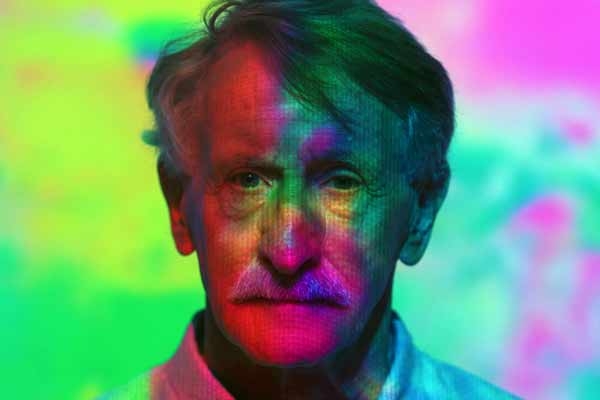'2071' is a performance about climate change, crafted around the words of scientist Professor Chris Rapley.
The production fuses facts about climate change with 3D projections and an original score of music. Here, Director Tim Jones answers some questions on the show.
Why is this performance important?
'2071' stages the facts of climate change. That may sound dry or academic but it’s not. It’s actually about capitalising on one of the great attributes of live performance, which is theatre’s ability to communicate through sound, visuals and great acting to a focused audience. So this performance is important because it uses a different means (theatre) to communicate the complexity of a subject that we have all heard about but that, perhaps, don’t fully understand. Most importantly, this production artistically conveys the potential impact of climate change on humanity. Communicating this dimension is something that theatre does particularly well.
What are some of the challenges you face/d directing a show like this?
This project is enormously challenging, because it is also a grand experiment. I’m re-imaging the original script (which was performed by the scientist Chris Rapley speaking his own words) to be performed by a great actor, John Gaden, and six young people aged 12 and 13. To this I’m adding an original score, some singing and musical accompaniment plus non-stop projections. More than anything else I’ve done, I’m not quite sure of the overall impact and effect of these elements coming together, which makes it challenging and very exciting.

What is your view on climate change?
That it's real and the only real options we have before all of us is to become more energy efficient and less wasteful. This means investing in renewable energy sources – the good news is that this is happening all around the world.
'2071' is created from the words of prestigious scientist Professor Chris Rapley. How is it structured around his dialogue?
Rapley and playwright Duncan Macmillan spent over 70 hours together discussing climate change and Rapley’s personal career in science. Macmillan then structured this into a beautiful monologue, starting with Rapley’s fascination with the universe as a child and ending with him imaging what the world might be like in 2071.

It's backed up by a score of original music, too. How would you describe the feeling of the music?
It’s very eclectic – a bit meditative and with strong Philip Glass-esque overtones. And then we have amazing real sounds of the earth turning, massive wind turbines and satellites in space. So the feel is all of this combined – if you can imagine. Theatre, science and art all collide for '2071'.
As the Director, how have you taken on the combination of these three things in one show?
All of these elements need to work in harmony. Rapley’s words are at the front, but then, at times, the music and visuals need to take over to convey the feeling and content of the words. So it’s really about knowing when each element needs to lead the production and when each needs to take a back-seat. It also needs to work on multiple levels at the same time. Some people will be affected by the music and visuals and others by the young cast talking about climate change.

'2071' has received critical acclaim. Tell us why you think this is.
Because it is deeply dramatic and real – which is the stuff of great theatre. Also because it’s very unusual – here we have a very complex issue, requiring our finest scientific minds to examine and assess but that, at the same time, has fundamental impacts for all of us, no matter where we live. '2071' attempts to translate the complexity into a language that we can all understand without dumbing it down. I think audiences and critics have been ready to spend time with this issue of major importance within a theatrical context.
What do you hope that audiences leave this show thinking and feeling?
That climate change is real and that we need to do more to ensure that our children and grandchildren can enjoy the prosperity we have had. I’d also like people to leave feeling positive about the many significant initiatives happening around the world to reduce CO2 emissions and that we also need to take these programmes further to future-proof our planet.






